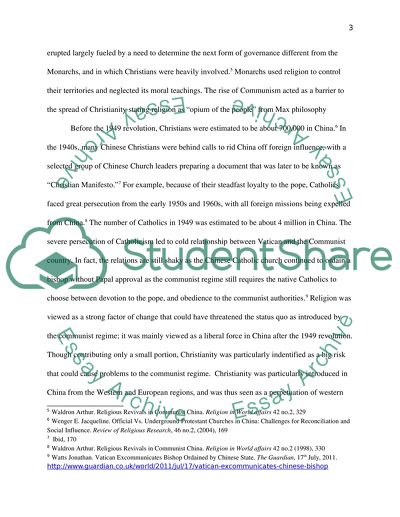Cite this document
(“Persistence of Christianity in Post communist china Research Paper”, n.d.)
Retrieved from https://studentshare.org/history/1456811-the
Retrieved from https://studentshare.org/history/1456811-the
(Persistence of Christianity in Post Communist China Research Paper)
https://studentshare.org/history/1456811-the.
https://studentshare.org/history/1456811-the.
“Persistence of Christianity in Post Communist China Research Paper”, n.d. https://studentshare.org/history/1456811-the.


